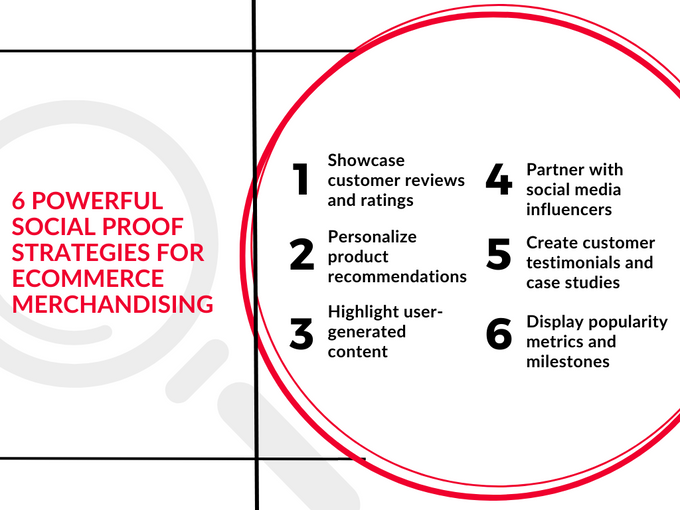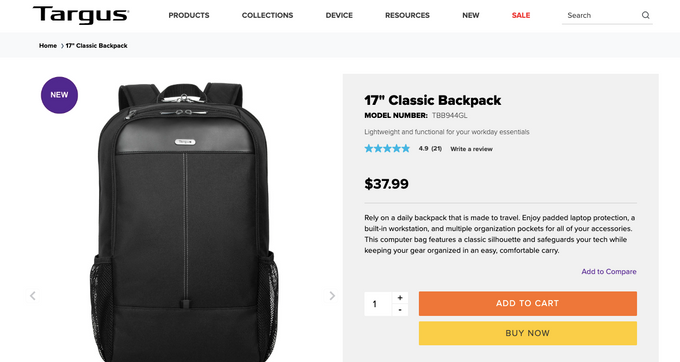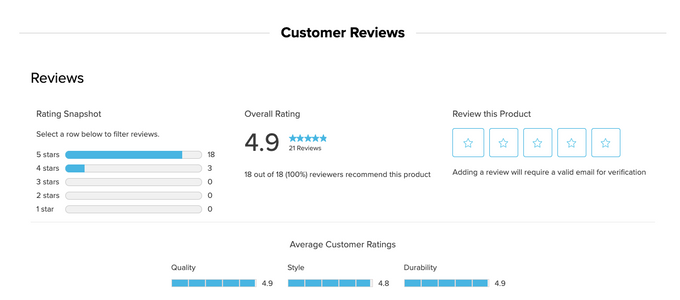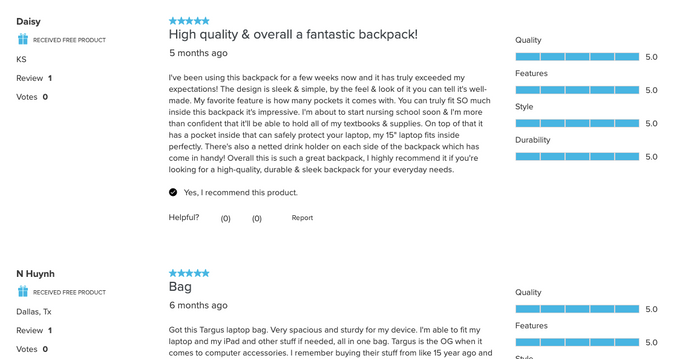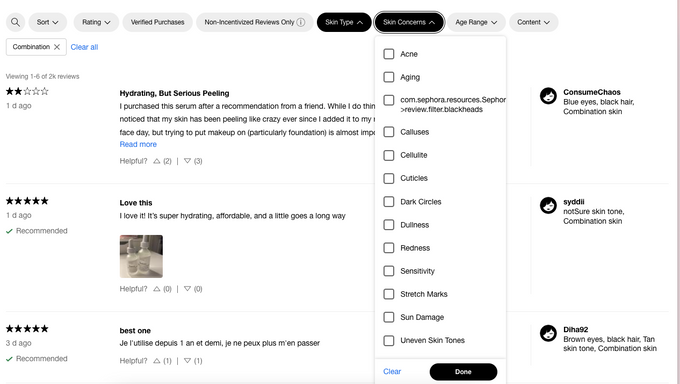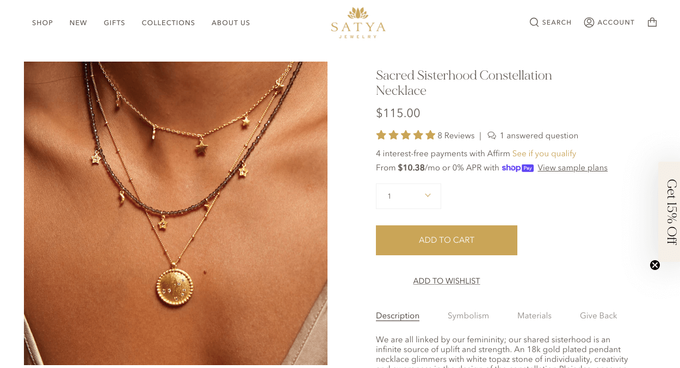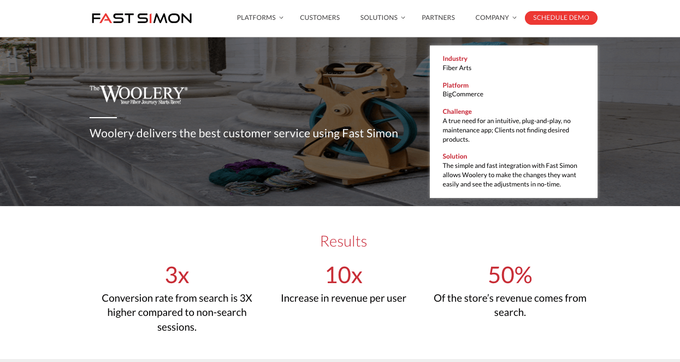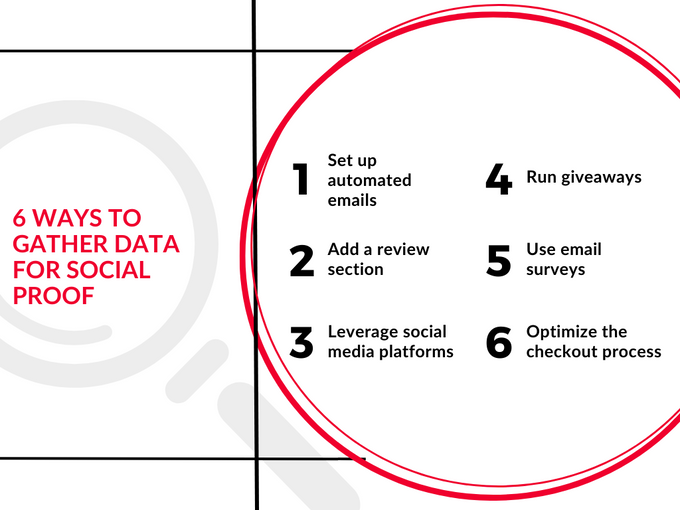From Likes to Sales: Harnessing Social Proof for eCommerce Merchandising
Social proof can be a powerful tool in your eCommerce merchandising strategy—here's how to get it right.
Updated December 12, 2025

Trust is one of the most important concepts when it comes to eCommerce. And using social proof in your eCommerce merchandising strategy is one key way to earn that trust. Social proof comes from recommendations by existing customers and well-known personalities. It boosts customer confidence in your business and validates your brand.
Let's take a closer look at how influential this concept can be when it comes to eCommerce merchandising. We'll also give you actionable tactics to help you turn likes into sales.
» Looking for tips to promote products? Learn from these eCommerce merchandising strategies
Meet the Expert
Sandra Stepan, co-founder of SnapAdvantage, has 10 years in digital marketing, focusing on e-commerce expansion. With success in building 7-figure brands, she amplifies growth for top brands. An industry leader, Sandra is a trusted expert for marketing excellence.
The Value of Social Proof in eCommerce Merchandising
Social proof is a psychological concept in which people match their actions or beliefs to others’. This is done to lessen uncertainty and make improved decisions. We tend to believe things are good or worthwhile if other people also think so.
Positive customer feedback—think reviews, testimonials, and endorsements—acts as powerful social proof in eCommerce merchandising. More than 80% of businesses consider verified reviews pivotal for purchasing decisions.
When used effectively, social proof:
- Builds trust: Positive reviews, high ratings, and customer endorsements showcase positive experiences, making customers more likely to buy.
- Informs decision-making: Potential customers are more likely to make informed decisions based on the experiences and opinions of others.
- Boosts credibility: Authentic social proof, such as reviews and testimonials, enhances the credibility of a product and the overall brand. It contributes to long-term customer loyalty.
» Struggling to come up with great product copy? Check out how to make your eCommerce product descriptions sing
6 Powerful Social Proof Strategies for eCommerce Merchandising
Social proof can come in many forms. Experts and fellow users can recommend your product through reviews or ratings. Influencers can showcase their trust in your brand online. And data and numbers can be used to add specific weight to your product's impact.
1. Showcase Customer Reviews and Ratings
Adding customer reviews and ratings to your product pages is an easy win for social proof that works. Product ratings and reviews influence 63% of consumers’ purchase decisions on websites. And 99% of customers say they read reviews when shopping online.
These reviews serve as testimonials from real users. They validate product quality and influence potential customers by providing authentic feedback.
Take electronics and accessories brand Targus, for example. It features a three-tiered review approach that helps customers make decisions as they gain interest and scroll down the product page.
First, you're presented with a simple star review next to the product picture.
As you scroll, you get more incentivized to buy through feature-based feedback on the bag's durability and quality.
Finally, the real and detailed product testimonials from customers may push you to make a purchase.
You can incorporate product reviews on your eCommerce store using a third-party platform such as REVIEWS.io. This platform collects and presents reviews your customers can trust.
» Eager to level up your product pages? Here's how you can improve your product merchandising
2. Personalize Product Recommendations
Social proof can also be used in recommendation algorithms, suggesting similar items based on browsing history, attributes, or session data. Many product pages feature sections such as "you might also like" or "frequently bought together". You can create as you through data.
Amazon’s algorithm, for instance, recommends products to users. It uses their past purchases, interactions, and item ratings. It also considers items viewed by users with similar interests.
Meanwhile, Sephora's customer reviews can be filtered for personalized needs.
Social proof doesn't stop at reviews and product pages. You can send your customers personalized targeted emails to gather feedback. Or use segmentation tactics to share products they may like, and further entice them in their shopping journey.
» Learn everything you need to know about personalization
3. Highlight User-Generated Content
In eCommerce, happy customers do the talking. 99% of your customers will be looking for images and videos created by your existing customers. They use this as proof of the product's quality.
Balance high-quality imagery with raw user-generated content for increased brand authenticity. Jewelry brand Satya Jewelry does this well with strong, editorial-like visual merchandising.
Below this, they include product reviews with real customer images to help represent the product authentically.
» Looking to make product searches picture perfect? Discover how you can use visual search to improve product discovery
4. Partner with Social Media Influencers
Influencers build communities around their expertise or interest areas, fostering trust and loyalty among their followers. An endorsement from a trusted source becomes a recommendation from a friend or respected figure.
This carries more weight than traditional advertising. And it means you can directly target an audience with whom your product will resonate.
Unlike faceless brands, influencers present a human face to products or services. Their genuine experiences and recommendations resonate with their audience, feeling more authentic and relatable than traditional marketing messages.
» Searching for the right personality for your brand? Check out these influencer marketing best practices
5. Create Customer Testimonials and Case Studies
Testimonials paint a picture of how your products or services solve specific problems and address real-world needs. This resonates with potential customers facing similar challenges, showcasing the practical benefits of your offerings.
It's particularly important in the B2B and SaaS industries, where products and services are often intangible. Our own customers' section on our website, for example, tells real-life stories. We're proud of the success that clients achieve by partnering with us. We want to tell their stories in their own words, and using clear, measurable data.
Video testimonials and case studies help establish industry authority and build trust, especially in markets with longer conversion periods.
6. Display Popularity Metrics and Milestones
Showcasing popularity metrics like "bestseller" badges, limited-time offers with countdown timers, or "X units sold" can create a sense of urgency and scarcity, influencing purchase decisions.
You can tailor popularity metrics and milestones to specific product categories or customer segments, making them more relevant and impactful. However, make sure to avoid exaggerated claims. Ensure your metrics are accurate and verifiable.
» Master the trade: Maximize eCommerce merchandising metrics for success
6 Ways to Gather Data for Social Proof
1. Set up Automated Emails
Don't leave feedback to chance. Set up automated email or SMS marketing campaigns thanking customers for their purchase and gently requesting reviews shortly after they receive your product or service. There are email marketing tools that can help you set up customized flows to recover abandoned carts.
Make it effortless by including direct links to popular review platforms or your own dedicated review section.
» See for yourself: check out these email remarketing campaign ideas that really work
2. Add a Review Section
Let customer experiences shine. Feature a prominent review section on your website, making it easily accessible and visually appealing.
Encourage photo submissions to add authenticity and let customer faces tell the story.
3. Leverage Social Media Platforms
Where your customers are talking, you should be listening. Actively engage with social media interactions, responding to comments and messages on platforms like Instagram and TikTok. Create a branded hashtag to track and showcase customer stories fueled by your products.
» Want more online influence? Learn how social media marketing drives consumer behavior
4. Run Giveaways
Host engaging contests or giveaways where participation hinges on submitting reviews or UGC. Promote them on social media to tap into a wider audience and capture the data ethically.
5. Use Email Surveys
Don't settle for surface-level feedback. Send post-purchase surveys via email to gather detailed insights that can go beyond basic reviews. Motivate responses with exclusive discounts or deals, turning reluctant participants into enthusiastic collaborators.
6. Optimize the Checkout Process
Customers love a seamless checkout. Include a simple review prompt or survey during checkout to collect immediate feedback. Don't make them jump through hoops – offer direct links, making the process seamless and convenient. This improves site navigation and the overall customer experience.
Social Proof: The Fast Track to Trust in eCommerce
When it comes to eCommerce, shoppers have a pack mentality. Pepper social proof across your eCommerce website to help build trust when it matters most. Integrate review tools to make this seamless for you and your customers.
Gather as much review information from people as possible to develop a solid reputation for quality. That's how you turn first-time visitors into loyal customers.
